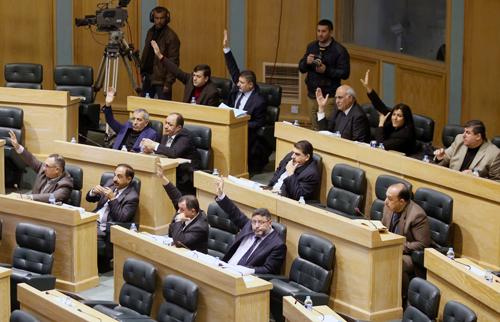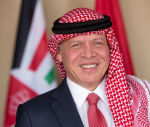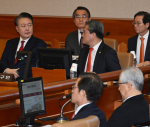You are here
‘Jordan stands to gain from partnering with Europe parliamentary assembly’
By Raed Omari - Jan 31,2016 - Last updated at Jan 31,2016

Lawmakers attend a Lower House session on Sunday (Photo by Raad Adayleh)
AMMAN — Jordan stands to benefit greatly from becoming a partner for democracy for the Parliamentary Assembly of the Council of Europe (PACE), Lower House Speaker Atef Tarawneh said on Sunday.
Last week, PACE decided to grant the Jordanian Parliament partner for democracy status, the fourth time that this status has been granted since being introduced in 2009.
Opening Sunday's Lower House session, Tarawneh attributed PACE'S acceptance of Parliament as a partner for democracy to the Kingdom's efforts to achieve regional stability and security, its humanitarian assistance to refugees and its comprehensive reform process.
"We have several themes and topics to submit to PACE and we will work on taking the utmost benefit out of our partnership in a way that serves our national interests and preserves our identity," the speaker said.
PACE may grant partner for democracy status to national parliaments of non-member states of the Council of Europe in neighbouring regions, which meet a set of conditions.
According to PACE's website, parliaments requesting a partner for democracy status should embrace the values of the Council of Europe, which are "pluralist and gender parity-based democracy, the rule of law and respect for human rights and fundamental freedoms".
As per conditions set by PACE, parliaments wishing to become democracy partners should demonstrate a commitment to act to abolish the death penalty and to encourage the competent authorities to introduce a moratorium on executions, a commitment to organise free and fair elections in compliance with relevant international standards and a commitment to encourage the balanced participation of women and men in public and political life, the website said.
In a statement it issued last week, PACE welcomed Jordan’s commitment to “give priority to in-depth constitutional, institutional, political and legal reforms”.
The assembly will review, within two years, the progress achieved in implementing the political commitments entered into by the Jordanian Parliament and the aforementioned reforms, PACE said in the statement.
Also during the Lower House's oversight session, MPs asked the government about the number of public cars bought in 2014 and granting a new mining concession to the Arab Potash Company.
MP Khalil Atiyyeh (Amman, 1st District) asked Foreign Minister Nasser Judeh why Jordan was absent from the UN vote on Israel’s bid for membership of the UN Committee on the Peaceful Uses of Outer Space Affairs.
Deputy Haitham Abbadi (Voice of the Nation List) asked about the cost of Jordan's nuclear reactor and whether the government would resort to the Social Security Corporation to help in covering the cost.
Related Articles
AMMAN — His Majesty King Abdullah on Monday discussed bilateral relations and the latest regional developments with French Senator and membe
Lower House Speaker Atef Tarawneh on Wednesday received a Danish delegation tasked with following up on Jordan’s request for Partner for Democracy status with the Parliamentary Assembly of the Council of Europe (PACE).
AMMAN — The Parliamentary Assembly of the Council of Europe (PACE) decided to award Jordan the permanent partner status for democracy, said














